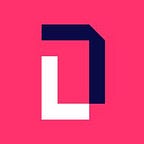This time in our series exploring the work processes and goals of technical leaders, we spoke with Grace Tan who shares how her team is overcoming the challenge of balancing short term impact and long term goals, taking time to keep coding, and the importance of building a network of allies.
What has been your journey in tech so far?
After graduating college, I started working as a software engineer at a financial tech firm in New York, where I spent some time before joining WeWork in Dec 2015. In the last four years at WeWork, I’ve been given the opportunity to build some of the core systems that power the business, as well as start a few different teams. Currently, I lead the Developer Agility team on the Product Offerings and Growth mission within Technology, where I’m focused on how to supercharge engineering efficiency and level up the infrastructure powering WeWork’s core business systems.
What has been the biggest challenge you’ve faced moving into your current role?
I’m incredibly proud of the work my team has accomplished in the last year, which includes giving back hours of development time per engineer per week. Our biggest challenge lies in balancing delivering features that will deliver great impact in the short-term, while also making progress on long-term, strategic goals.
And how you’re working to overcome the challenge?
It can be hard to get consensus on how best to approach long-term goals, however, we’ve developed a high degree of trust between us and our stakeholders (other engineers) by creating short feedback loops, and always delivering value fast. When shipping new products, we aim to get something usable into our stakeholders’ hands within 2–3 sprints. It helps us find enthusiastic early adopters who then become our evangelizers and also get valuable feedback early in the development cycle.
Briefly describe your stack and workflow?
My team works mainly in Ruby and Java, and we build products that address inefficiencies or gaps in developer processes, ultimately making it easier for them to build and monitor services.
Currently, we are working on a suite of applications that will integrate with our engineers’ Kubernetes workflow, so we are doing quite a bit of work within that ecosystem. In the last year, we’ve also built libraries to standardize how we use Rabbitmq, shipped systems that integrate with our CI/CD to codify compliance requirements, and partnered with other teams to solve tough architectural challenges.
What does your typical day look like?
My typical day usually starts the night before, when I quickly organize what I need to do the next day. My life revolves around my Google calendar, and my nightly mental preparation helps me identify the key things I have to do the next morning to really set my day up for success.
Each day is usually a mix of meetings, interviews, code reviews, and 1:1s. If I am in the planning part of the quarter, I spend quite a bit of time putting together our team’s strategy and getting feedback from my collaborators and stakeholders within and outside my department.
Every quarter, I like to allot time for a few non-blocking (or fairly isolated) features that I can deliver myself. This allows me to get a deeper sense of the systems we are building, collaborate with my teammates on a different level, and scratch my coding itch without holding up the team. I don’t get to do this every sprint, but I am grateful that my team still encourages and supports me contributing to our feature work when I can.
What’s the best and worst part of your job?
The best part of my job is getting to work with the people on my team. Truthfully, I feel grateful to be a part of their lives every day. They are exemplary engineers and humans. The worst part of my job is the context switching. It can be challenging for me to hop from a code review to leading a meeting to doing an interview. This is when time blocking becomes your best friend, but it is not always possible.
What is the best piece of advice you’ve received?
Find your support network, and then pay it forward. I was the only female engineer in my cohort at my first job, and the first female engineer at WeWork. It was a difficult, isolating experience in the beginning, and I often felt like I couldn’t be successful in the industry. I feel extremely lucky that I was able to build a network of allies at work that supported me both personally and professionally. Without them, I likely would have left tech.
While at WeWork, I’ve been active in helping people build their support networks. I’ve co-founded the Women Engineers forum, the Male Allies group, and the Tech Ethics group, focusing on making sure people feel heard, supported, and can self-organize around issues that they care about. It’s been inspiring to see difficult conversations unfold in these arenas, and coworkers really connecting with each other on issues that matter to them. These groups have been a huge part of my life at WeWork, and would encourage others to invest time and energy to organize around things they care about. It really made a difference for me.
What is your most useful resource (book, blog, newsletter)?
I really like InfoQ’s software architect newsletter, and everyone should sign up for the Tech Workers Coalition newsletter to learn more about equity in tech. Also, Liz Fong-Jones’ Twitter is everything.
What’s one thing you’d like to learn, develop or work on in 2019?
I am excited to continue working on my side project, KinderMakery. I build educational tech projects for kids and then show them at local elementary schools.
